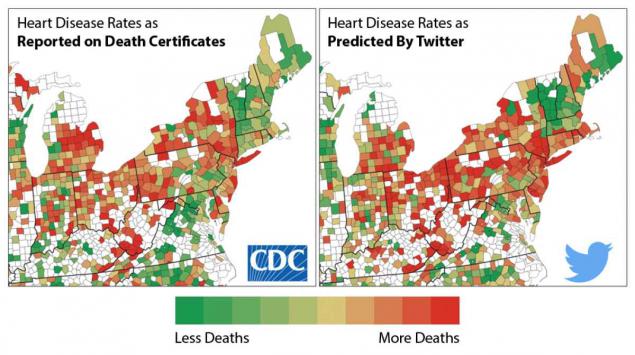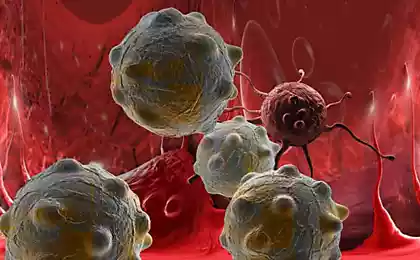905
With the help of Twitter have shown that negative emotions lead to heart disease

team of researchers from different disciplines (psychology, computer science, medicine) of the University of Pennsylvania and Melbourne published an article & quot; Psychological Language on Twitter Predicts County-Level Heart Disease Mortality & quot; magazine Psycological Science, which is estimated to predict the level of cardiovascular disease at the level of regions of the country with the help of Twitter. As it turned out, the long-known fact that negative emotions have a direct impact on human health, was true, if you approach it with the help of inspection even social networking.
The researchers proceeded as follows: they analyzed 148 million tweets written in different regions of the United States in 1347, highlighting in them signs of negative emotions. These were swear words, mention of the negative cases (accident, crime, disease), mourning the lack of sleep, just words markers indicating the doldrums author tweet. The findings are geographically distributed across a specially designed map.
The actual geographical distribution of cardiovascular disease, researchers have received from the United States Centers for Disease Control and Prevention, and compared with that obtained "card tweets". As it turned out, both cards are very good agreement:

The result was the logical conclusion is made that the negative emotions that are often an expression of depression, really lead to serious health problems, with this was confirmed by means of a very broad and voluntary statistical sampling. It is interesting to note the fact that the authors have noted the difference in the age of the average Twitter user, and the age at which heart disease has become a very common problem. The average age of a Twitter user is 35 years, while the age of 60 is considered potentially dangerous in terms of heart disease. The difference, as suggested by the researchers, is still due to the fact that negative emotions are caused by the general mood in the family and society, still influencing the person.
Source: geektimes.ru/post/244798/























